Hey there! If you're on the hunt for a solid reference letter, you're in the right spot. Crafting a well-structured request can make all the difference in getting a glowing endorsement from someone who knows your skills best. Ready to learn how to ask for that favor without feeling awkward? Let's dive in and explore some tips to help you secure that reference letter!
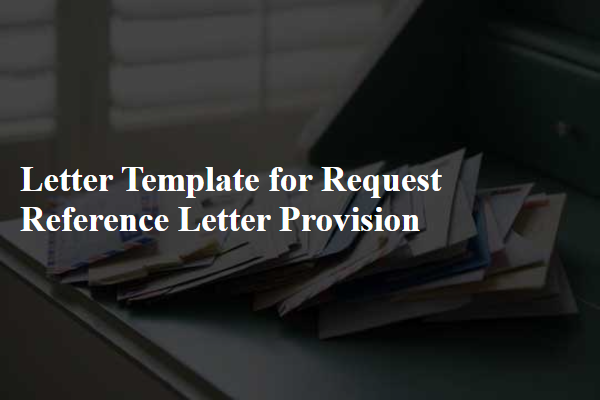
Personal Details
Requesting a reference letter is a vital step in various personal and professional contexts, such as job applications or academic pursuits. When approaching a potential referee, it is essential to provide clear personal details to aid their recollection and ensure the letter reflects your strengths accurately. Consider including key information such as full name, contact number, email address, and relevant addresses, such as previous workplaces or educational institutions, including dates of employment or study. Additional details may encompass the specific achievements during your time with them, your role, and the skills you demonstrated that they may want to highlight. Crafting a respectful and concise request will facilitate the referee's ability to write a strong endorsement.
Purpose of Reference
In a professional context, a reference letter serves to validate a candidate's qualifications, character, and experience for potential employers or educational institutions. When requesting a reference letter, it is crucial to provide context regarding the purpose of the request. For instance, a job application may necessitate a reference that highlights skills and achievements relevant to the desired position in a specific sector such as technology or healthcare. An academic reference could focus on achievements in coursework or research contributions at a recognized institution like Harvard University or Stanford University. Mentioning the specific role or program, such as a Master's program in Environmental Science, enables the referee to tailor their endorsement effectively. Additionally, providing deadlines or submission guidelines, whether through an online portal or email, ensures timely provision of the reference, which can significantly impact the application process.
Specific Points for Reference
When seeking a reference letter, it is essential to communicate specific points that the referee should highlight. Important aspects may include professional skills such as project management, which contributed to successful outcomes in previous roles, or expertise in software development, demonstrating proficiency in languages like Python and Java. Mentioning notable achievements, like delivering projects ahead of schedule or receiving awards for exceptional performance, can bolster the reference's impact. Additionally, highlighting interpersonal skills such as teamwork and leadership in collaborative environments showcases the ability to work effectively with diverse teams. Providing context on the relationship duration, such as years spent working together at Company XYZ, can offer credibility to the reference.
Relationship with the Referee
A request for a reference letter usually stems from a relationship grounded in professional interactions or academic mentorship. An applicant may approach a former employer, supervisor, or professor, highlighting their collaborative experiences during specific projects or courses. This relationship may span several months to years, showcasing the individual's skills and qualities witnessed by the referee. For instance, a professor who guided a student through a thesis process can provide insights into the applicant's research capabilities, critical thinking, and dedication to academic excellence. A supervisor may recount the individual's achievements during employment, such as exceeding sales targets or leading a successful team project. These references serve as significant endorsements, crucial for job applications, graduate school admissions, or professional networking opportunities.
Submission Deadline Details
A request for a reference letter can be vital for various applications, such as academic admissions, job opportunities, or professional certifications. Specific submission deadlines can greatly influence the timing and urgency of the request. When approaching potential referees, providing clear information regarding the deadline is essential. For example, if the submission deadline is November 15, 2023, it is beneficial to communicate this date early, along with any specific requirements or guidelines provided by the institution or organization. A polite reminder closer to the deadline might also ensure that the referee submits the letter on time, maintaining both professionalism and respect for their busy schedule.

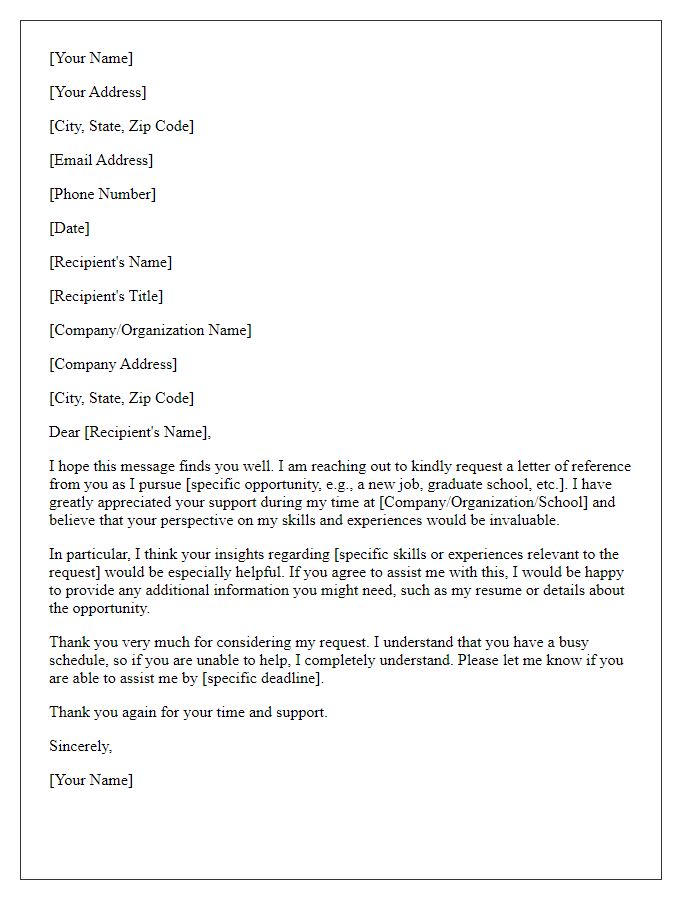
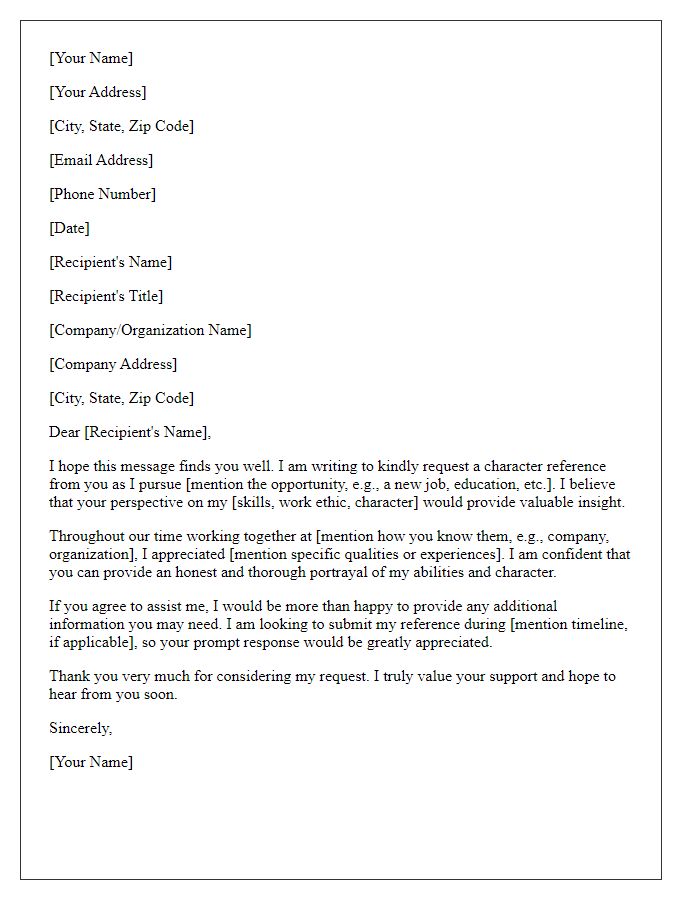
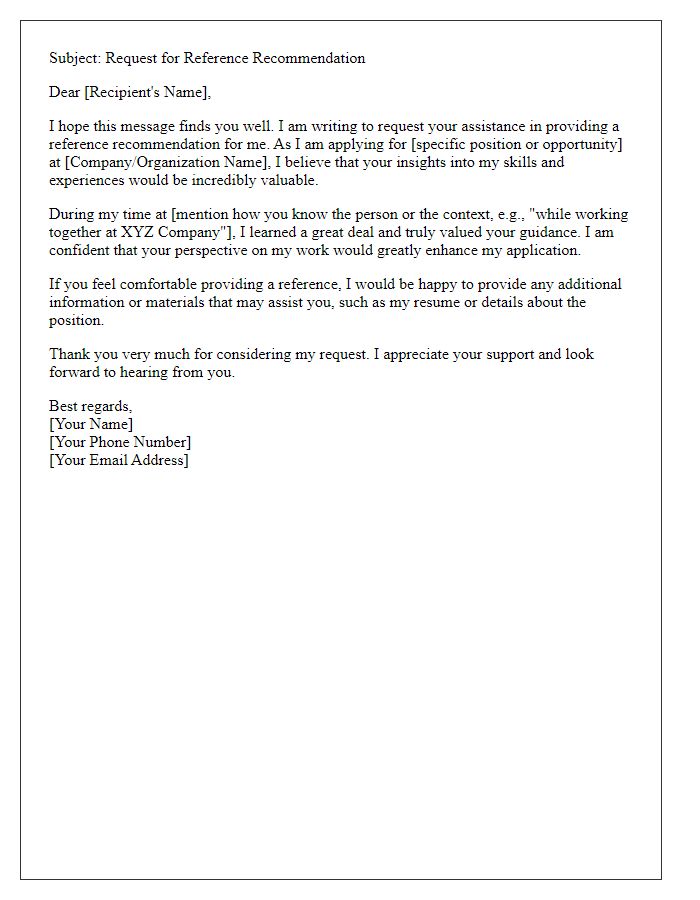
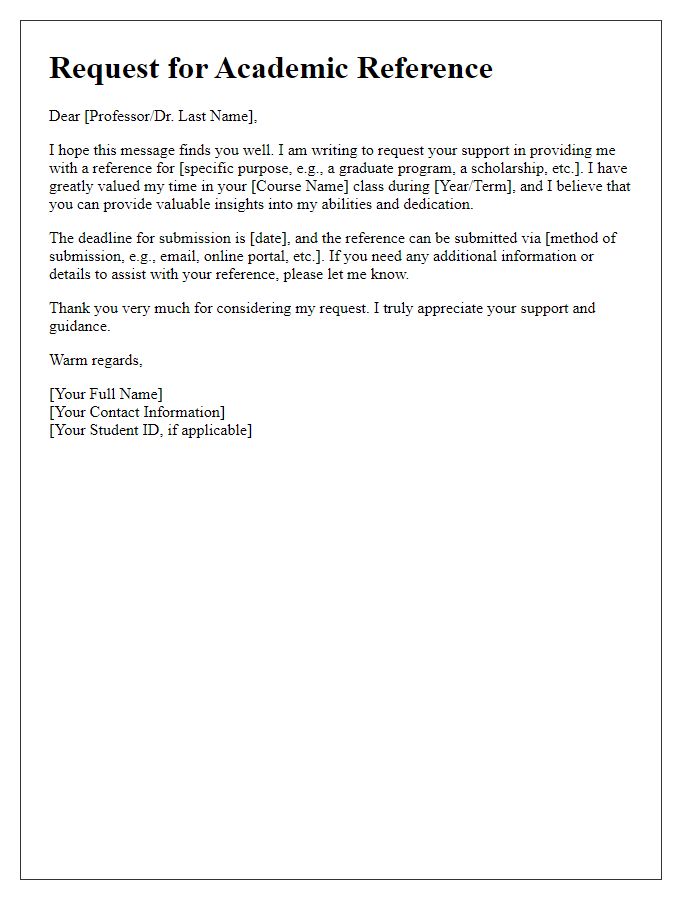
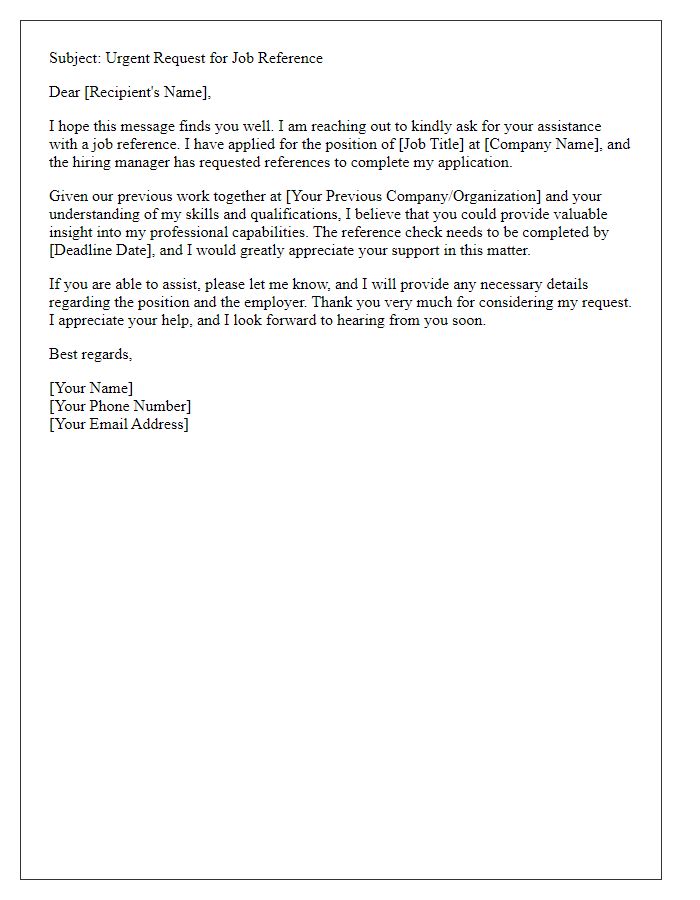
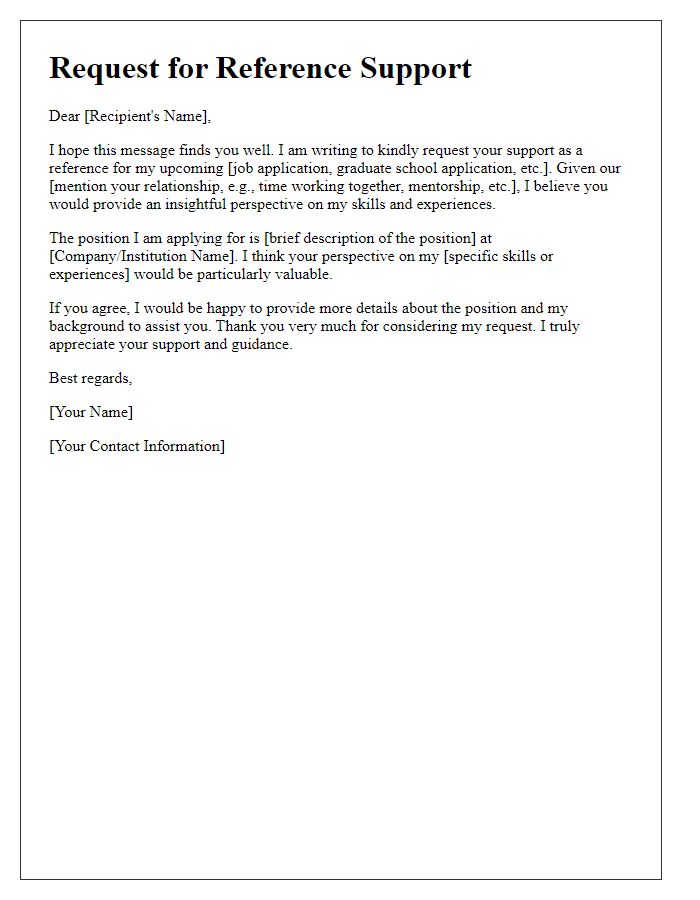
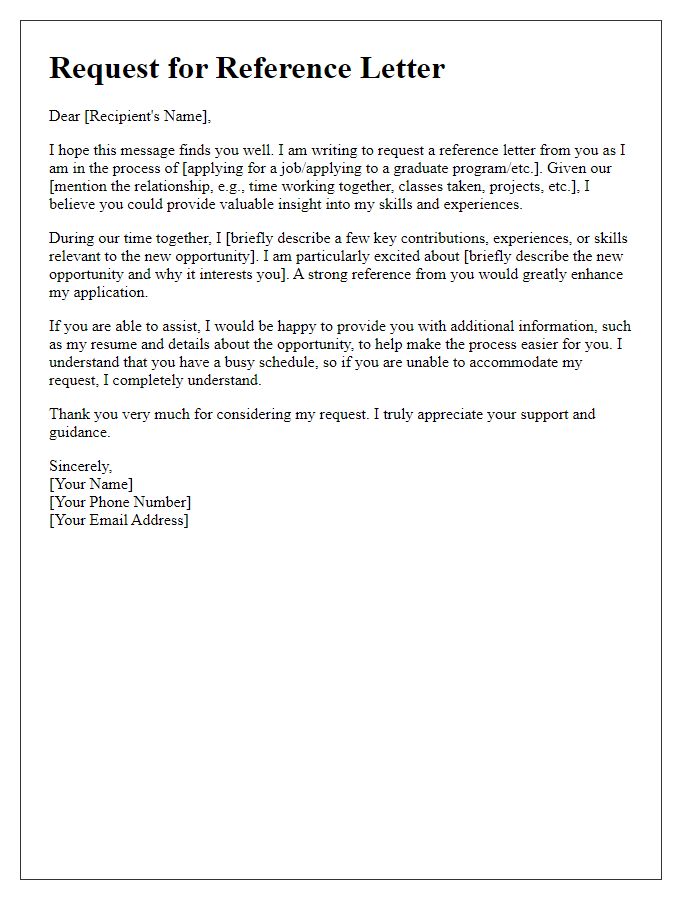
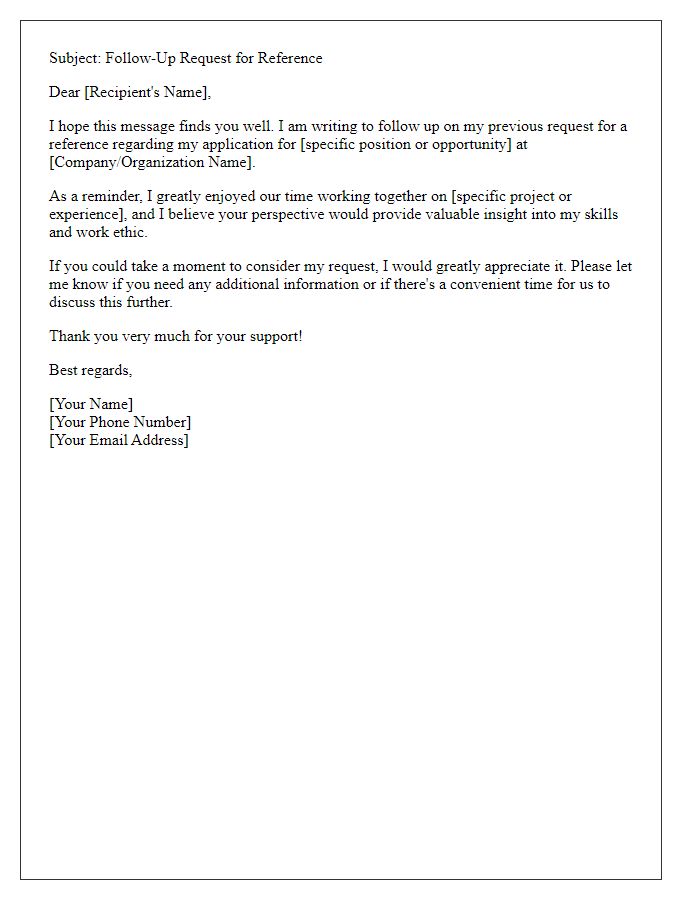
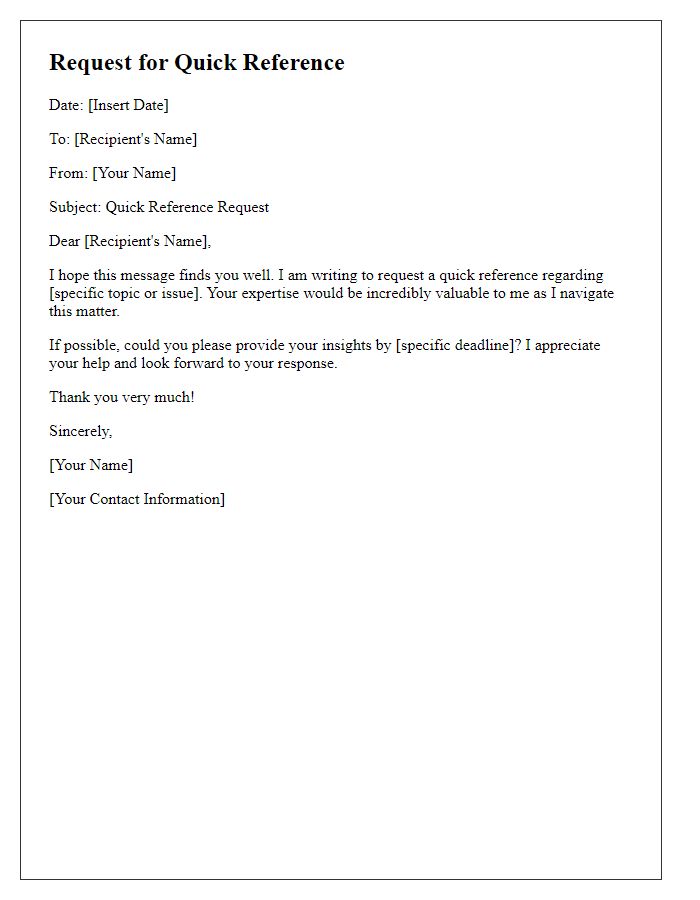
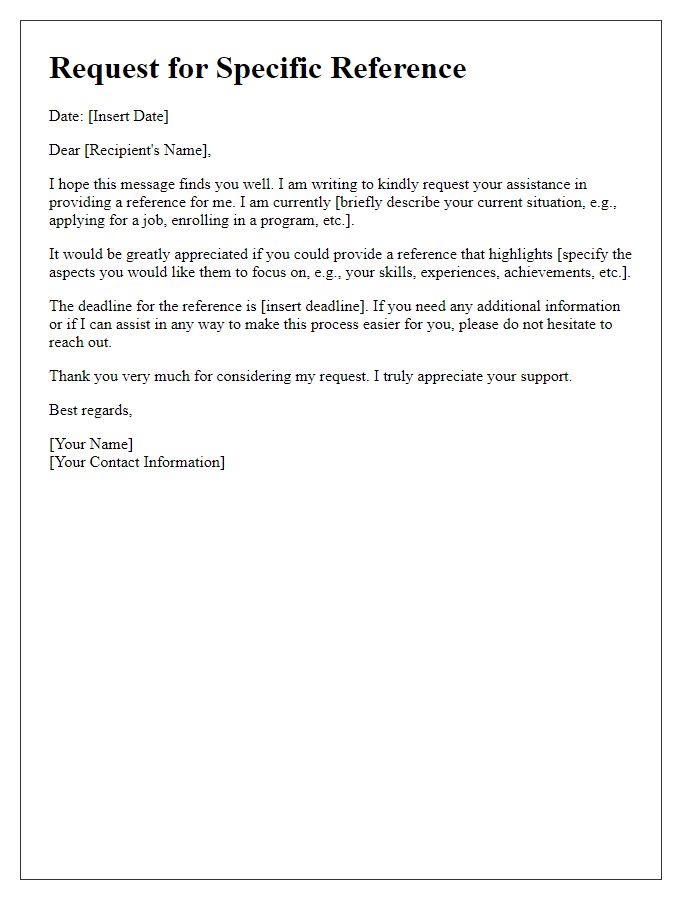


Comments